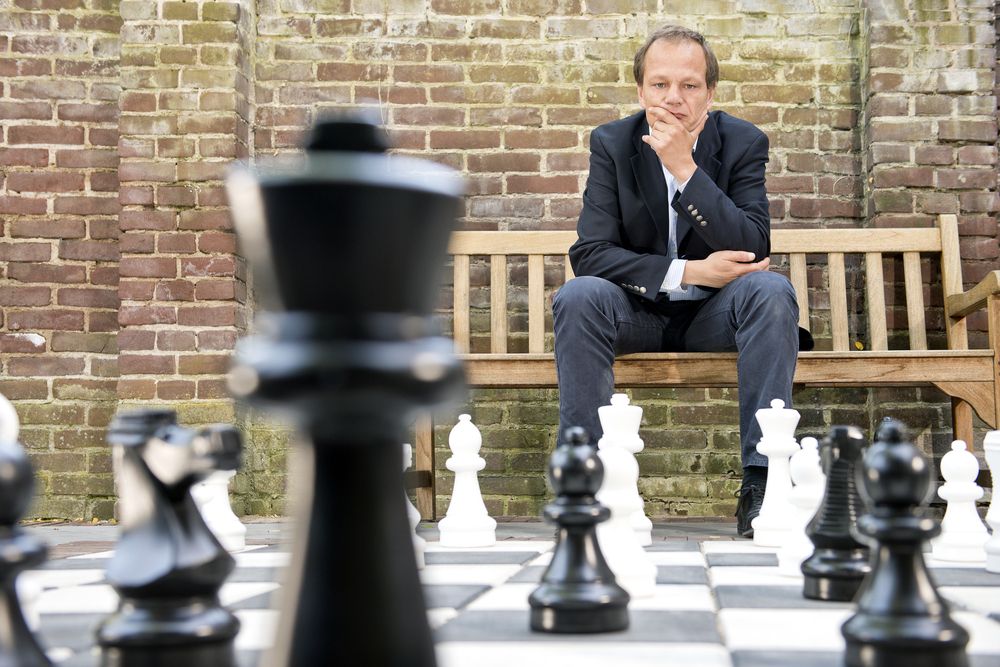All chess players, even the finest ones, will make mistakes during a game. A serious error that has serious repercussions in chess can be classified as an error of judgment that should not occur. As you can see here, it happens to some of the best players including GMs.
Situations arise that alter the evaluation of a position from winning to equal or losing, or can even lead to online chess engines recognizing this missed win as such.
Definition
A blunder is defined as any mistake which results in significant change to a position, often for the worse. This type of error could transform what was once winnable into a defeat or turn an even game into a draw, unlike mistakes which involve smaller inaccuracies and missed opportunities to score an immediate win.
Blunders may result from simple oversights, while mistakes often reflect a deeper misunderstanding of the game. For example, missing an obvious checkmate in one move due to miscalculation is evidence of mistake while missing it after 10 moves due to another miscalculation is evidence of error.
Blundering in rapid chess is more common than classical, due to the speed of play reducing how much time players have to consider their moves and plan them out. Blundering can also occur if tiredness or overconfidence prevent them from making sound decisions.
As part of your goal to reduce errors, it’s essential that you recognize how blundering impacts your game in order to avoid repeating them in the future. One effective method for doing so is reviewing past games and reviewing your mistakes – this way you will identify any major blunders you might make more frequently and develop ways to mitigate their effect in future ones.
Blundering can be detrimental to your chess career, leading to lost material or even defeat. But by understanding what blunders mean in chess and employing effective strategies to mitigate them, you can improve your performance and reach the pinnacle of your potential.
Make a blunder means losing focus and concentration during a key part of a game, usually because you feel overwhelmed by its complexity or under pressure; overconfident and careless players may also make errors; to prevent this, practice keeping your concentration when playing fast-paced situations as this will ensure that your attention remains focused on essential aspects. Also, before beginning to play a new game it is advisable to study its details thoroughly as this will allow your mind to stay on task during its development.
Causes
Even experienced chess players often commit mistakes during games, as the sport of chess can be highly unpredictable. With many factors that could alter its outcome – including an opponent’s preparation or your mental state – having said this, paying close attention to detail and honing strategic planning skills can reduce blunders you make significantly.
Blunders often arise when players make moves which deteriorate their position, leading them to lose material or even completely collapse the middlegame. A player making such a mistake could find their rook moving into open spaces or into weak positions within the centre, for instance, likely leading to them forfeiting large amounts of material in return.
Another cause of errors lies in misreading their opponents’ intentions, such as not noticing pins, skewers, discovered attacks or double attacks that occur throughout a match.
Miscalculation or overestimation may also lead to errors. For instance, when overestimating how strong of a combination they can create with their pieces, they risk making costly mistakes which cost them dearly in games like those between IM Jaime Santos Latasa and GM Francisco Vallejo Pons – in this instance Santos Latasa lost an entire rook due to miscalculating what his attack would cost his opponent (e.g. IM Santos Latasa lost an entire rook due to miscalculating how valuable his attack would be worth!).
At first glance, an apparent error may not be as serious as initially anticipated; this is often because your opponent can defend the position effectively against your attack and stop your move from moving forward. When playing against an experienced grandmaster (GM), for example, the chances are high that their strong defence will prevent your attack from progressing any further than it already had been.
Avoiding mistakes requires studying your opponent’s openings and endgames closely in order to understand their strengths and weaknesses as well as ways you can exploit them. Furthermore, studying basic chess tactics and strategy will enhance your knowledge of the game, helping prevent costly errors from being made which could cost you the game itself.
Symptoms
A blunder is a serious error that can dramatically change the course of a game. It may turn an advantageous position into a losing one or even turn it around altogether. Blundering can occur due to lack of concentration, overly aggressive strategy or simple miscalculations; tactical errors include hanging pieces or overlooking threats while strategic errors include moving pieces to incorrect squares or missing opportunities for checkmate.
Blundering can occur even during an otherwise strong chess game when players become fatigued. Frustration can lead to mindless mistakes and loss of focus, turning promising positions into catastrophe. Fatigue also creates tunnel vision where one area dominates over others – something professional players often struggle with due to intense tournament schedules and high competition levels.
Time pressure can also play an integral part in leading to errors. With only limited time available to make decisions quickly and make hasty decisions quickly enough that missed threats or missed opportunities are overlooked; this is particularly prevalent when playing complex chess positions or timed-controlled games.
No matter their skill level, even the greatest chess players can commit serious errors that cost them the game. Some notable examples of blunders in chess include Paul Morphy’s queen blunder against Lionel Kieseritzky and Siegbert Tarrasch’s rook misplay against Harry Pillsbury – two notable instances that made headlines and cost players dearly in terms of losses in subsequent rounds.
As players can take steps to avoid mistakes, there are measures they can take to help themselves. They can analyze their own games, identify recurring errors and practice until their performance improves. They can also learn from other players’ errors by studying their games and studying why they made those errors; this can help players avoid making similar blunders in future games and increase chances of success. Understanding what blunders mean and how to avoid them is integral for honing chess skills.
Remedy
Practice basic tactics of the game is key to avoiding mistakes in this competitive sport, from learning what each move means and its effects on your opponent to checking every move for threats; this will enable you to identify things your opponent may have overlooked and help prevent you from making tactical oversights.
In chess, a blunder is a catastrophic error that can devastate a player’s chances of victory in a match. Players often make these errors when feeling overconfident or overwhelmed and losing focus – in extreme cases it could even hand an opponent an advantageous position!
An annotated move that constitutes an error, such as losing pieces or substantially worsening a position, will typically be indicated with a question mark (?). Other mistakes which are equally detrimental, but do not qualify as errors include mistakes (?) which could lose pieces and significantly worsen positions and inaccurancies (?), which do not count as mistakes but do not have good moves either.
Errors often occur because players miscalculate the strength of their positions. They might misjudge how many defenders or space there is between their pieces, for instance. Furthermore, players could commit tactical errors like initiating attacks without making sure that they possess all of the resources required for success in these attacks.
Though not an exhaustive explanation for why players make mistakes, it’s still beneficial to become familiar with different errors and how they affect your game. Furthermore, learning to identify your own errors and improve is vital.
Blundering is an issue for all players, particularly lower-rated ones and beginners. Defensive players tend to commit less errors since they don’t feel the need to risk pieces just so they can gain an edge; regardless of its cause, however, avoiding blunders is vital to improving one’s chess skills; even a frustrating and costly mistake such as this can be overcome through hard work and dedication.




